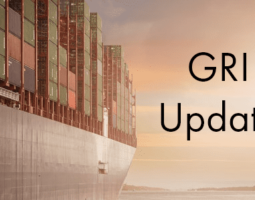Scarbrough’s Guide to Freight Forwarding
As any international shipper knows, freight forwarding is much more than getting a product or shipment from point A to point B. While it may look that way on the surface, the process is complex and requires a level of expertise and care.
Freight forwarders are specialists in arranging delivery of cargo, generally across different modes of transport. They are experts in every step of the process, from planning to documentation.
In a sense, a forwarder is similar to a broker or middleman, but that doesn’t make them any less valuable. So, let’s take a look at what exactly they do and why it’s beneficial to work with a forwarder.
What does a freight forwarder do?
As we touched on above, a freight forwarder is responsible for facilitating the movement of goods for a business. They are the entity that brokers the shippers and the transportation companies. Generally, a freight forwarder will organize everything from carrier procurement to destination arrival.
The best freight forwarders can use their expertise to guide their clients to optimal solutions based on their specific needs. Price is always an important piece, but factors like routing also play a key role in the process. Combining a favorable rate with an optimal route to avoid any potential disruptions in the supply chain sets the best freight forwarders apart and keeps their clients happy. Forwarders have to be flexible problem solvers in a constantly changing and evolving shipping industry.
Once a merchant has compiled their goods for shipment and determined where they need to go, the forwarder will take it from there. Forwarders can use their vast network of relationships to procure a carrier at the best rate to transport the goods. The carrier is then responsible for picking up the goods at their origin and ensuring safe transport to the destination.
However, forwarders have other responsibilities throughout the process. They are also responsible for ensuring the goods are undamaged before their departure. As well as making sure there is proper documentation, and the goods are able to clear customs.
Once goods are deemed ready to ship, it is the forwarders job to work with export customs to get the goods ready to clear customs. Forwarders will handle the paperwork at both the origin and destination to ensure all customs processes are completed accurately.
Finally, once the shipment has reached its destination country, it is on the forwarder to make sure the goods get to their final destination. This could either be a warehouse owned by the forwarder where the merchant can retrieve their goods, or the forwarder will arrange final transport to another destination.
What are the benefits of working with a forwarder?
Convenience: Organizing a shipment is a time-consuming and extensive process. Working with an expert allows a merchant to focus on their own business and save countless hours by letting someone else handle the finer details of the process.
Cost-Effectiveness: The best freight forwarders have spent many years building relationships with carriers around the globe. These relationships allow them to negotiate the best rates, often better than a company could negotiate on their own. It also allows them to shop around and have multiple options to ensure the best rates possible. As mentioned above, forwarders are able to combine competitive rates with the most efficient routing to keep supply chains operating smoothly and protecting a company’s bottom line.
Speed and Efficiency: Much like anything else, working with an expert in the field can cut down on time lost to inefficiency and confusion. From paperwork to securing rates and space, a forwarder will be able to complete the process much quicker than someone who is unfamiliar with the process, saving time and money in the process.
Tracking Technology: The best freight forwarders offer real-time tracking software to ensure you always know where your shipment is. Some, like Scarbrough, use their proprietary software to offer enhanced tracking and documentation, but there is a variety of software that provides tracking technology.
Documentation: The customs process is complex. Freight forwarders are well-equipped to complete customs documents both quickly and accurately. Much like with carriers, having an existing relationship with various agencies can also help avoid any mistakes or delays.
Compliance: Legal and regulatory requirements vary from country to country and are liable to change at any time. Ensuring compliance with these requirements is crucial when it comes to delivering shipments on time and avoiding potential fines. Working with an experienced forwarder with knowledge of all the different requirements can save time and stress throughout the process.
If you’re looking to simplify your shipping process, Scarbrough is here to help. Reach out to us today to talk solutions and let us make your logistics problem our problem.
